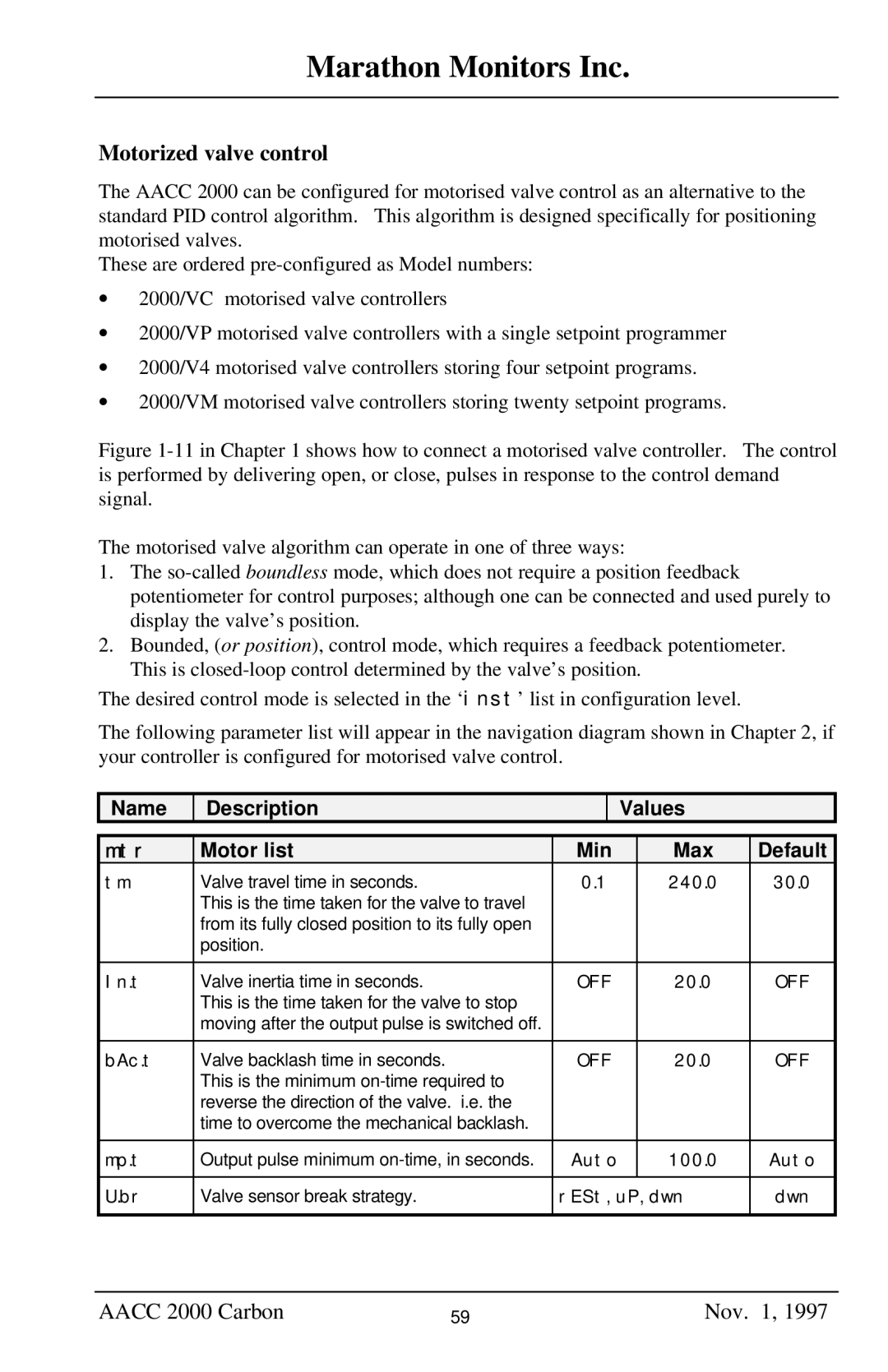
Marathon Monitors Inc.
Motorized valve control
The AACC 2000 can be configured for motorised valve control as an alternative to the standard PID control algorithm. This algorithm is designed specifically for positioning motorised valves.
These are ordered
∙2000/VC motorised valve controllers
∙2000/VP motorised valve controllers with a single setpoint programmer
∙2000/V4 motorised valve controllers storing four setpoint programs.
∙2000/VM motorised valve controllers storing twenty setpoint programs.
Figure 1-11 in Chapter 1 shows how to connect a motorised valve controller. The control is performed by delivering open, or close, pulses in response to the control demand signal.
The motorised valve algorithm can operate in one of three ways:
1.The so-called boundless mode, which does not require a position feedback potentiometer for control purposes; although one can be connected and used purely to display the valve’s position.
2.Bounded, (or position), control mode, which requires a feedback potentiometer. This is closed-loop control determined by the valve’s position.
The desired control mode is selected in the ‘inst’ list in configuration level.
The following parameter list will appear in the navigation diagram shown in Chapter 2, if your controller is configured for motorised valve control.
Name | Description |
|
| Values |
| |
|
|
|
|
|
| |
mtr | Motor list | Min |
| Max | Default | |
tm | Valve travel time in seconds. | 0.1 |
|
| 240.0 | 30.0 |
| This is the time taken for the valve to travel |
|
|
|
|
|
| from its fully closed position to its fully open |
|
|
|
|
|
| position. |
|
|
|
|
|
|
|
|
|
|
| |
In.t | Valve inertia time in seconds. | OFF |
| 20.0 | OFF | |
| This is the time taken for the valve to stop |
|
|
|
|
|
| moving after the output pulse is switched off. |
|
|
|
|
|
|
|
|
|
|
| |
bAc.t | Valve backlash time in seconds. | OFF |
| 20.0 | OFF | |
| This is the minimum |
|
|
|
|
|
| reverse the direction of the valve. i.e. the |
|
|
|
|
|
| time to overcome the mechanical backlash. |
|
|
|
|
|
|
|
|
|
|
| |
mp.t | Output pulse minimum | Auto |
| 100.0 | Auto | |
|
|
|
|
| ||
U.br | Valve sensor break strategy. | rESt, uP, dwn | dwn | |||
|
|
|
|
|
|
|
AACC 2000 Carbon | 59 | Nov. 1, 1997 |
